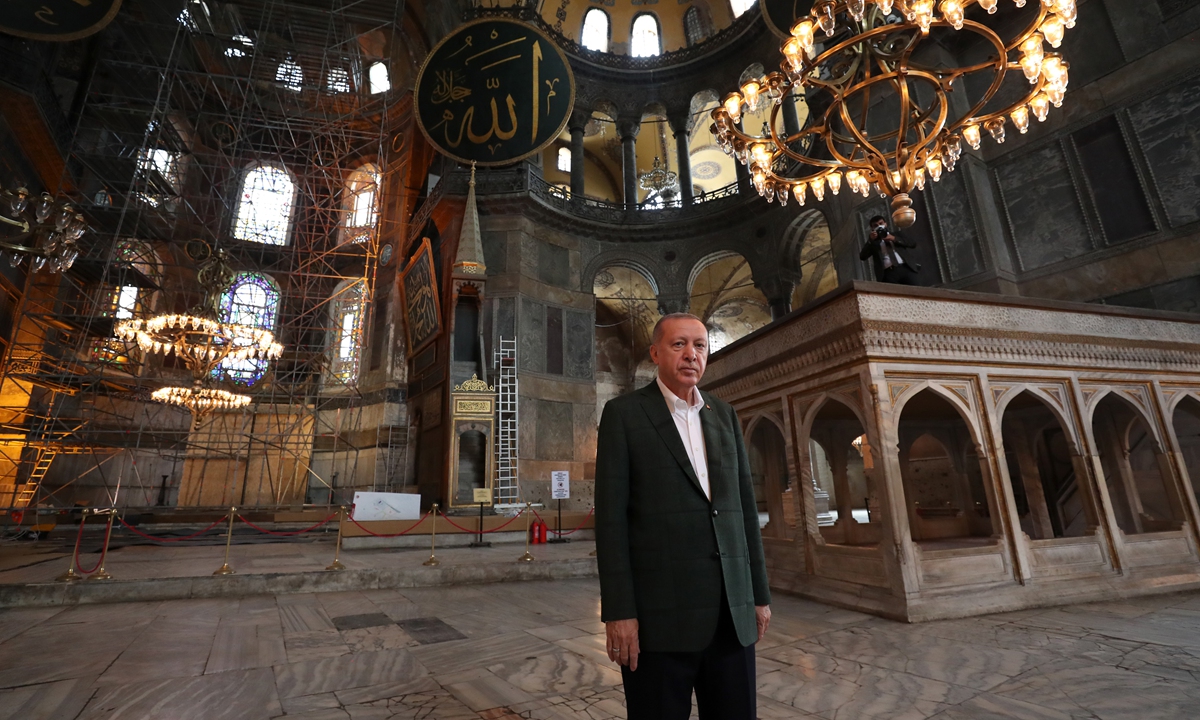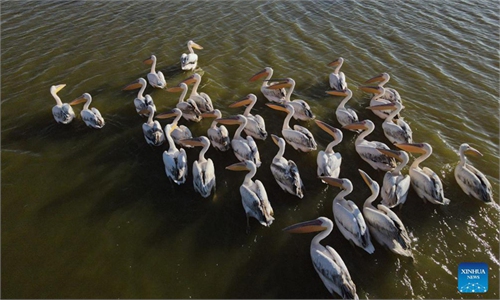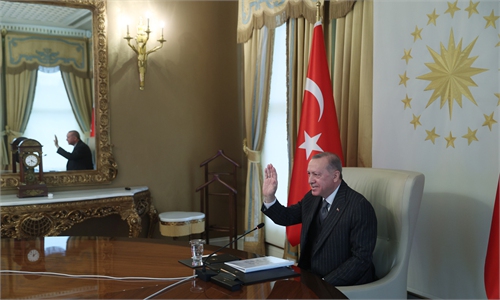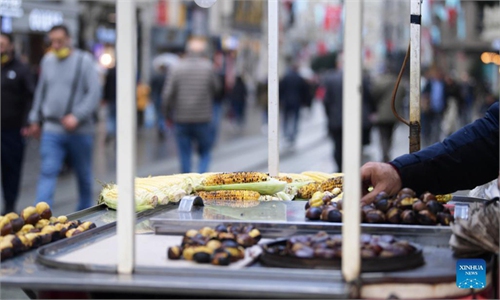
This picture shows Turkish President Tayyip Erdogan visiting Hagia Sofia on Sunday. Photo: AFP
Turkish-backed groups in northern Syria have weaponized water by building dams on a river that serves as a lifeline for communities living downstream in Kurdish-dominated areas, a report alleged Wednesday said.
New research conducted by Dutch peace-building organization PAX shows that the Syrian National Army (SNA) built three dams that cut off the vital Khabour river.
The SNA is a military group armed and funded by Turkey present in an area of northern Syria contiguous to the semi-autonomous northeastern region run by the Kurdish-majority Syrian Democratic Forces.
The militia that forms the SDF's backbone is considered a terrorist organization by the Turkish government, whose military presence in northern Syria is at least partly aimed at preventing any resurgence of Kurdish separatism.
The PAX research, which includes field work and satellite imagery analysis, found that the SNA's blocking of a vital river during the region's driest summer on record was "a clear-cut example of using water as weapon of war."
It said that the building of the dams compounded the effects of a severe drought.
"The impact of the extreme heat was magnified by very limited rainfall, which meant agricultural communities had less water than ever at their time of greatest need," it said.
The imagery published by PAX shows the three dams, the first of which was completed on May 22.
The Khabour is a 320-kilometer-long tributary of the Euphrates whose source is in Turkey but runs across much of northeastern Syria and through Hasakeh, one of the main cities in the Kurdish region.
The research estimated that thousands of households were deprived of access to water due to the building of the dams, noting that this amounted to a clear violation of international humanitarian law.
"This could be a calculated measure employed by the SNA with the intention of starving the civilian population and/or bringing about their forced displacement as a method of warfare," the research said.
AFP



